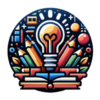Time management is a critical skill for students at all levels of education. Balancing academic responsibilities with personal activities can be challenging, but with the right strategies, students can optimize their time, reduce stress, and achieve success in their academic and personal lives. This article explores effective time management strategies tailored for students.
Understanding Time Management
Understanding time management is crucial for students who strive to balance their academic and personal lives efficiently. Time management is the art of organizing and planning how to divide your time between various activities. Good time management allows students to accomplish more in a shorter period, leads to more free time, which increases productivity and efficiency and lowers stress levels.
Time is a unique resource; it’s non-renewable, non-transferable, and available equally to all. Once gone, it cannot be reclaimed, making its effective management critical. Effective time management involves understanding the difference between being busy and being productive. It’s not about packing more tasks into your day; rather, it’s about organizing your tasks more effectively so that you complete the important ones.
For students, time management skills can improve their academic performance and reduce the anxiety of looming deadlines. By mastering these skills, they can focus better, have more time for hobbies and interests, and achieve a better balance between school and personal life.
Furthermore, the ability to manage time effectively is important beyond academics. In personal life and future careers, these skills ensure that tasks are completed within set timeframes and help in setting a balance between work and leisure activities. Therefore, developing good time management skills in school can lay a foundation for a more productive and fulfilling life.
Health, Well-being, and Time Management
The intricate connection between health, well-being, and time management is often overlooked in the pursuit of academic and personal success. Effective time management is not just about accomplishing tasks; it’s also about maintaining physical, mental, and emotional well-being. When students manage their time wisely, they create a balance that supports their overall health, leading to improved productivity and a more fulfilling life.
Physical Health: A well-structured time management plan should include regular slots for physical activity. Exercise is a proven stress reliever and improves concentration and mental function, crucial for academic success. Students should allocate time for gym sessions, sports, yoga, or even short walks. Regular physical activity helps maintain energy levels, enhance mood, and promote better sleep, all of which are essential for effective learning.
Mental and Emotional Health: Students often experience high levels of stress due to academic pressures. Effective time management can reduce this stress by ensuring tasks are completed within manageable timeframes, avoiding last-minute rushes and anxiety. It’s also important to schedule downtime and relaxation activities. Activities like meditation, reading for pleasure, or spending time with friends and family can rejuvenate the mind and spirit.
Sleep: One of the most critical yet commonly sacrificed aspects of student health is sleep. Adequate sleep is essential for memory consolidation, mood regulation, and overall health. Good time management ensures that students don’t have to sacrifice sleep to meet deadlines, thereby improving their academic performance and well-being.
In essence, effective time management is a holistic approach. It’s not just about managing tasks but also about taking care of one’s physical, mental, and emotional health. By prioritizing these aspects within their schedule, students can achieve a healthy balance, leading to improved academic performance and a more enjoyable and fulfilling student life.
Set Clear Goals
Define Short-term and Long-term Goals
Start by setting clear, achievable goals. Distinguish between long-term goals (like graduating with honors) and short-term goals (like completing an assignment by its due date). Use the SMART criteria to make goals Specific, Measurable, Achievable, Relevant, and Time-bound.
Prioritize Tasks
Once goals are set, prioritize tasks based on importance and urgency. Not all tasks have equal significance, so focus on what will most impact your goals. Tools like the Eisenhower Box can help categorize tasks into four categories: urgent and important, important but not urgent, urgent but not important, and neither urgent nor important.
Create a Realistic Schedule
Use Planners and Calendars
Utilize planners and calendars. Digital tools like Google Calendar or traditional planners can be effective for scheduling. Include class times, study sessions, and extracurricular activities. Be realistic about how much time each task requires.
Allocate Time for Breaks
Include short breaks to avoid burnout. The Pomodoro Technique, involving 25-minute focus sessions followed by 5-minute breaks, is a popular method for maintaining productivity and focus.
Develop Efficient Study Habits
Active Learning
Engage in active learning. Rather than passively reading, use techniques like summarizing information, teaching concepts to someone else, or applying concepts to different contexts. This enhances understanding and memory retention.
Group Study
Consider group study for complex subjects. Learning from peers can provide new perspectives and a deeper understanding of the material.
Avoid Procrastination
Identify Triggers
Understand what leads to procrastination. It could be a lack of interest in the subject, a feeling of overwhelm, or a distraction-rich environment.
Set Small, Manageable Goals
Break down large tasks into smaller, more manageable parts. This makes the work seem less daunting and helps maintain steady progress.
Balance Academic and Personal Life
Time for Personal Activities
Allocate time for personal activities and hobbies. Balancing academic responsibilities with personal life is crucial for mental health and overall well-being.
Flexibility
Be flexible. Sometimes unexpected events occur. Having a flexible schedule allows you to adapt without significant stress.
Utilize Technology Effectively
Educational Apps and Tools
Leverage technology. Numerous apps and tools are designed to aid in time management, note-taking, and organization. Apps like Evernote for note-taking, Trello for task management, or Forest for maintaining focus can be very useful.
Limit Distractions
Be mindful of how you use technology. Social media and other digital distractions can consume a lot of time. Set specific times for these activities or use apps that limit your usage during study hours.
Reflect and Adjust
Regularly Review Your Schedule
Consistently review and adjust your schedule. What works in one semester might not be effective in another. Be open to changing your strategies as your situation changes.
Seek Feedback
Don’t hesitate to seek feedback from teachers, peers, or mentors. They can provide valuable insights into how you can improve your time management skills.
Time Management for Different Learning Styles
Effective time management is not a one-size-fits-all skill, especially in an educational context. Students have different learning styles—visual, auditory, kinesthetic, or a combination of these. Recognizing and adapting time management strategies to fit these learning styles can significantly enhance both academic performance and personal satisfaction.
Visual Learners: Students who prefer visual learning thrive on information presented in a visual format like charts, diagrams, and mind maps. For these learners, visually organizing their time can be highly effective. They might benefit from color-coded calendars or planners, visual timelines for projects, and graphical representations of their weekly or monthly schedules. Tools like Gantt charts or visual project management software can be particularly helpful for managing larger tasks or projects.
Auditory Learners: Those who learn best through listening might find traditional planners less helpful. Instead, auditory learners can benefit from verbalizing their plans or schedules. Recording their to-do list and playing it back, using speech-to-text features to create schedules, or discussing their time management strategies with peers can be highly effective. Additionally, setting reminders with voice notes can help in keeping track of tasks and deadlines.
Kinesthetic Learners: Students who are kinesthetic learners prefer a hands-on approach and learn best by doing. For them, time management strategies that involve physical activity can be more effective. This can include writing down tasks and schedules in a notebook rather than typing them, using physical objects like post-it notes to arrange and rearrange tasks, or even walking through their daily or weekly schedule as a physical exercise.
In the end, understanding your learning style is key to developing a time management strategy that works for you. By tailoring these strategies to fit how you learn best, you can maximize your productivity and efficiency in both academic and personal pursuits.
Conclusion
Effective time management is a key skill that benefits students throughout their academic journey and beyond. By setting clear goals, creating realistic schedules, developing efficient study habits, avoiding procrastination, balancing personal and academic life, utilizing technology effectively, and regularly reflecting on and adjusting your approach, you can enhance your productivity and reduce stress. Remember, time management is a personal journey, and what works for one student may not work for another. Experiment with different strategies and find the ones that fit your unique lifestyle and learning style.

